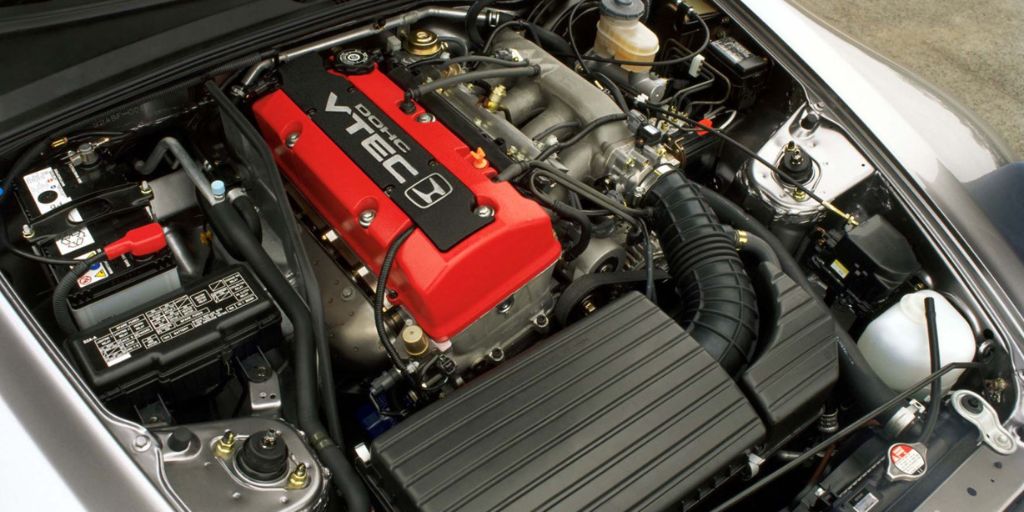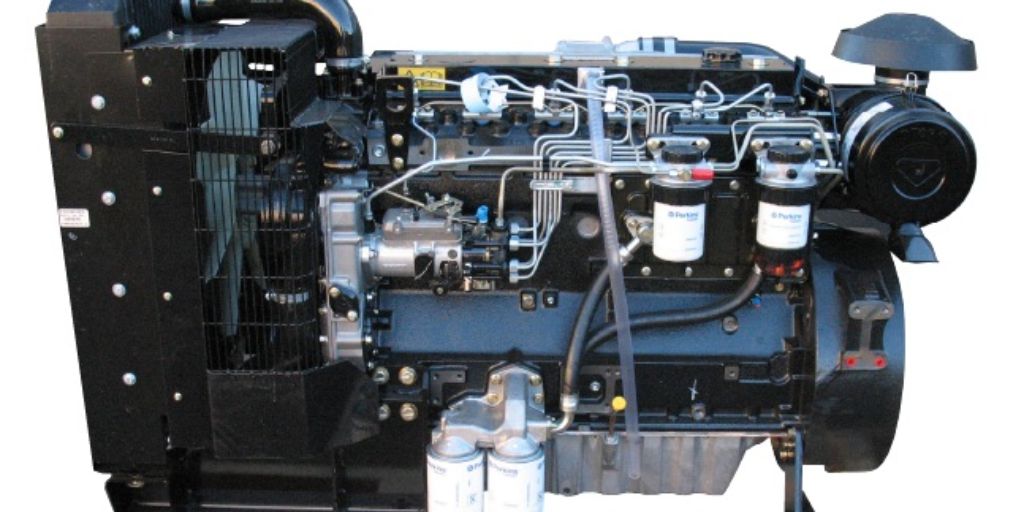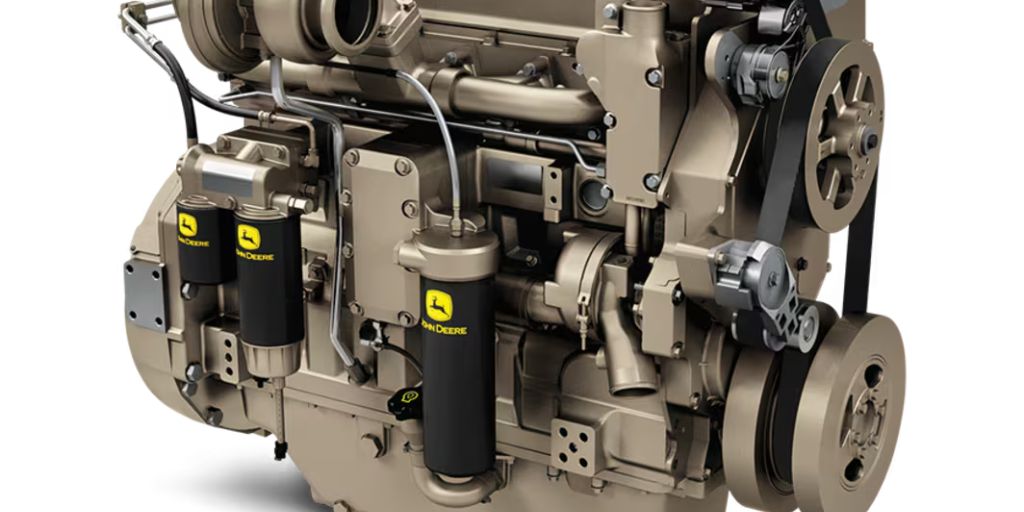Engines are the heart of modern vehicles, and their proper functioning relies heavily on a variety of critical components working together seamlessly. One of the most vital elements that ensure the smooth operation of an engine is oil.
Engine oil serves several key functions, including lubrication, cooling, and cleaning the engine’s moving parts. Without oil, an engine would struggle to operate, and even a short distance of driving could lead to severe damage.
Running a modern engine without oil for just a mile may seem like a minor issue, but the consequences can be catastrophic. Modern engines, despite their technological advancements, still rely on basic principles of mechanical movement.
The engine’s internal parts—such as pistons, crankshafts, and valves—need a constant layer of lubrication to minimize friction.
When there’s no oil to reduce friction, the metal parts rub against each other, causing heat to build up. This heat, combined with the lack of lubrication, can quickly lead to irreparable damage.
In today’s cars, engines are designed with precision engineering and high tolerances, meaning that the engine’s internal components fit closely together and move at high speeds. The absence of oil can cause these parts to seize up or overheat.
Even though many modern vehicles are equipped with various warning systems, such as oil pressure sensors, that alert drivers when oil levels are low, running the engine without oil for any significant amount of time is a risk no one should take.
In this article, we will explore what happens when a modern engine is run without oil for a mile. We will discuss the mechanics of engine oil, the role it plays in the engine, and the potential damage that could result from such a situation.
From lubrication failure to total engine destruction, the consequences of running without oil are far-reaching and can lead to expensive repairs and even the need for a complete engine replacement.
Also Read: The ‘Unkillable’ Engine That Was Once Used in Both Planes and Cars
The Role of Engine Oil
To understand why running an engine without oil can be so damaging, it is essential to first understand the key functions of engine oil.
Engine oil is responsible for performing several tasks that ensure the engine remains in good condition and operates efficiently. The primary functions of engine oil include:
Lubrication:
One of the main reasons engines use oil is to reduce friction. As various moving parts, such as pistons and crankshafts, interact inside the engine, friction is generated. Friction creates heat, which can lead to metal parts becoming worn down, damaged, or deformed.
Engine oil forms a thin barrier between these metal surfaces, reducing the amount of direct contact and, therefore, the friction between them.
Without this lubrication, the engine’s parts would grind against each other, causing rapid wear and increasing the chances of catastrophic failure.
Cooling:
While the engine’s cooling system (radiator, coolant, etc.) is designed to manage the temperature of the engine as a whole, engine oil also plays a crucial role in cooling the internal components.

As oil circulates through the engine, it picks up excess heat from the moving parts and carries it away, ensuring that temperatures stay within safe operating limits. Without oil, overheating becomes a significant risk, leading to the breakdown of metal parts and seals.
Cleaning and Contaminant Removal:
Engine oil helps to clean the engine by trapping debris, dirt, and carbon particles that naturally accumulate during combustion. The oil circulates through a filter, which catches these contaminants and prevents them from causing damage to the engine.
Without oil, harmful particles would build up within the engine, increasing wear and contributing to further degradation of parts.
Sealing:
Engine oil also helps to seal the gaps between various components, such as the pistons and cylinder walls. This sealing effect prevents gases from escaping the combustion chamber and helps maintain optimal compression, which is essential for engine performance.
When there is no oil, seals can become compromised, leading to reduced engine efficiency and possible leaks.
What Happens When an Engine Runs Without Oil?
Now that we understand the vital role engine oil plays, we can examine the sequence of events that would unfold if you were to drive a modern engine without oil for just one mile. The process can be broken down into several stages, each more catastrophic than the last.
Initial Lack of Lubrication
The moment you start the engine without oil, the metal components that were previously protected by oil will begin to rub against each other. This lack of lubrication immediately increases friction, which in turn raises the temperature of the engine.
The engine will begin to overheat much more quickly than it would if it had oil. Without oil, the friction between the moving parts is unchecked, and this rapid increase in heat will cause parts to warp and expand. It is at this point that the early signs of damage, such as noise and slight vibrations, might be noticed.
Heat Build-Up and Increased Wear
After driving for just a short distance, the heat generated from the friction between the moving parts will continue to rise. Normally, engine oil would dissipate this heat, but without it, the temperature within the engine will soar.
This can cause parts like pistons, camshafts, and bearings to expand and potentially seize up. The metal surfaces, now exposed to direct contact with each other, begin to break down under the intense heat and pressure.
This process leads to what is known as “scuffing” or “scoring” on the engine’s internal parts. Scuffing occurs when the metal surfaces are worn down to the point where grooves and scratches are formed.
These imperfections make it difficult, if not impossible, for the parts to function properly. At this point, the damage becomes irreversible, and the engine will likely begin to make loud knocking or grinding noises.
Seizing of Engine Components
As the friction and heat continue to escalate, parts of the engine may begin to seize up. The pistons, for example, may become stuck within the cylinders due to the extreme lack of lubrication.
In more severe cases, the crankshaft can seize, causing the engine to stop entirely. When parts seize, the engine is effectively rendered inoperable, and even attempting to restart it could cause further damage.
A key part of the engine that is highly vulnerable to seizing is the oil pump. The oil pump relies on oil to function and circulate the lubricant throughout the engine.
Without oil, the pump itself could become damaged, meaning that even if oil is added later, the pump may not be able to circulate it properly, making the situation even worse.
Overheating and Potential Engine Meltdown
As the engine continues to run without oil, the heat will eventually become so extreme that it can cause the engine components to literally melt.
The cylinder heads, pistons, and other parts of the engine are made from metals such as aluminum, which can melt at relatively low temperatures compared to steel or iron.
When these parts begin to melt, the engine is effectively destroyed, and the cost of repairs or replacement will be astronomical.
In addition to the melting of metal parts, the lack of lubrication can also cause seals and gaskets to fail. These parts, which are essential for maintaining the engine’s integrity, can deteriorate without oil, leading to leaks and further damage.
Permanent Engine Damage
Even if the engine doesn’t seize up or completely overheat, running without oil will result in significant long-term damage. The lack of lubrication causes increased wear on critical engine components, such as bearings, camshafts, and the crankshaft.
These components are responsible for converting the energy from combustion into usable power, and without proper lubrication, they can become misaligned or damaged to the point where the engine’s performance is severely compromised.
If the engine does not seize, it will likely suffer from a reduction in power and efficiency. Even after oil is added back, the damage done by running without oil will not be easily reversed. The engine will likely experience reduced compression, misfires, and poor fuel economy.
The wear on the engine components will also shorten the lifespan of the engine overall, meaning that the vehicle will likely need a full engine replacement sooner than expected.
Possible Sensor and Computer Failures
Modern engines are equipped with sophisticated sensors and computer systems that monitor everything from oil pressure to engine temperature. These sensors will often send warning signals to the driver if the oil pressure is low or if there is an issue with the engine.
However, if the engine runs completely out of oil, these sensors may fail to provide accurate readings due to the rapid degradation of the engine components.
In some cases, the engine’s computer may even shut the engine down to prevent further damage, but if this does not occur in time, the consequences will be catastrophic.
Impact on the Timing Chain and Valve Train
Modern engines rely on a variety of components to ensure precise timing of the engine’s cycles. These include the timing chain, camshaft, and the valve train, which is responsible for controlling the intake and exhaust valves.
The timing chain, often located at the front of the engine, is lubricated by the oil that circulates throughout the system. Without oil, this critical component can wear out or even snap under the strain of continuous use.
A damaged timing chain can cause the engine’s timing to go off, leading to misfires, poor performance, and potentially catastrophic damage.
If the timing chain fails completely, the engine will lose its ability to operate correctly, and in most cases, it will cause severe internal damage to the pistons, valves, and camshaft.
This is because the valves may collide with the pistons, bending or breaking them, which leads to costly repairs and the possible need for a full engine replacement.
The valve train, which controls the opening and closing of the engine’s valves, is also heavily reliant on oil for lubrication.
Without oil, the friction between the moving components in the valve train increases significantly, resulting in excessive wear and the risk of catastrophic failure.
If the valves become damaged or stuck, the engine will suffer a significant loss in power and efficiency, leading to rough running, poor fuel economy, and eventually, total engine failure.
Increased Risk of Engine Contamination
Another consequence of running without oil is the increased risk of engine contamination. Engine oil, as it circulates through the engine, helps to trap contaminants such as dirt, metal shavings, and carbon deposits.
These impurities can cause further damage to internal components if not properly filtered. Without oil to trap these particles, they will accumulate within the engine, exacerbating the wear and tear on the moving parts.

In the absence of oil, these contaminants can clog critical passages, disrupt the normal operation of the engine, and contribute to further deterioration of components like the oil pump, crankshaft, and camshaft.
Running a modern engine without oil, even for a short distance such as one mile, can have severe consequences. Oil plays a critical role in lubrication, cooling, cleaning, and sealing the engine’s components.
Without it, the friction between moving parts increases exponentially, leading to overheating, increased wear, and eventual engine failure.
While modern engines may come with sensors that alert drivers to low oil levels, these warnings are not foolproof, and once the oil is completely depleted, the damage can happen quickly.
The sequence of events includes friction-induced heat build-up, which leads to component wear and potential seizing. As the engine continues to run without oil, critical parts may melt or become irreparably damaged.
Once this damage occurs, the engine may suffer from reduced performance, or in the worst case, it may completely fail.
Even if oil is added back into the engine after a short run without oil, the damage done is often permanent and can lead to expensive repairs or even the need for a complete engine replacement.
To prevent such catastrophic failures, it is essential to regularly check oil levels and ensure that the engine is properly lubricated.
Routine maintenance, including oil changes, is crucial for prolonging the lifespan of your engine and ensuring that your vehicle remains in optimal working condition.
If you find yourself driving with low or no oil, it is imperative to stop immediately to avoid permanent damage to your engine.

